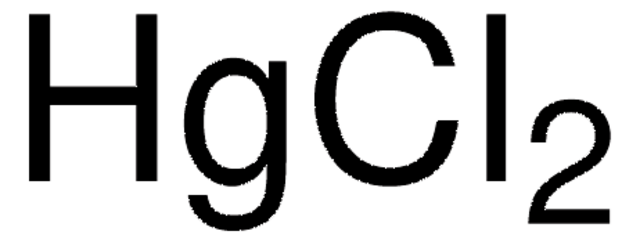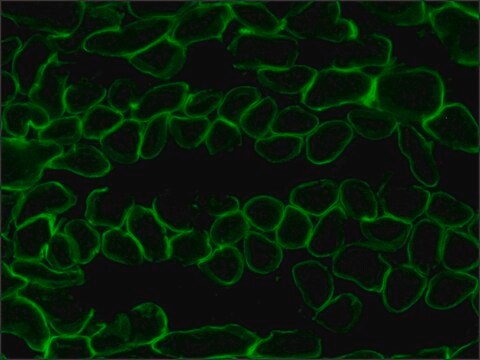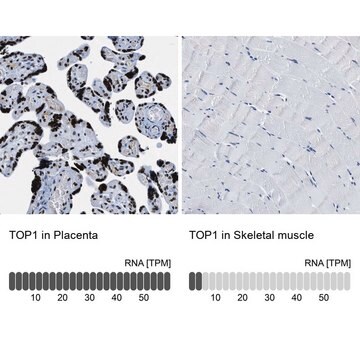M1136
Mercury(II) chloride
ReagentPlus®, 99%
Synonym(s):
Mercuric chloride
About This Item
Recommended Products
vapor pressure
1.3 mmHg ( 236 °C)
Quality Level
product line
ReagentPlus®
Assay
99%
form
powder
reaction suitability
reagent type: catalyst
core: mercury
mp
277 °C (lit.)
SMILES string
Cl[Hg]Cl
InChI
1S/2ClH.Hg/h2*1H;/q;;+2/p-2
InChI key
LWJROJCJINYWOX-UHFFFAOYSA-L
Looking for similar products? Visit Product Comparison Guide
General description
Application
It may be used as a catalyst for the addition reaction between aromatic amines and terminal acetylenes. It may also be used in the synthesis of [(HgCl2)2(HgCl2)(2-bppt)]n where 2-bppt= bis[4-(pyridine-2-yl)pyrimidin-2-ylthio]methane.
It assists in the following reactions:
- Cyclization of amidinothioureas with phenyl hydrazine to afford 3-amino-1,2,4-triazole derivatives.
- Cyclization-rearrangement of O-propargyl glycolaldehyde dithioacetals leading to the formation of 3-pyranones.
- Reductive dimerization and cyclization of α,β-unsaturated ketones to generate 3,4-trans-diarylcyclopentanols.
Quality
Legal Information
Signal Word
Danger
Hazard Statements
Precautionary Statements
Hazard Classifications
Acute Tox. 2 Oral - Aquatic Acute 1 - Aquatic Chronic 1 - Muta. 2 - Repr. 2 - Skin Corr. 1B - STOT RE 1
Storage Class Code
6.1B - Non-combustible acute toxic Cat. 1 and 2 / very toxic hazardous materials
WGK
WGK 3
Flash Point(F)
Not applicable
Flash Point(C)
Not applicable
Choose from one of the most recent versions:
Already Own This Product?
Find documentation for the products that you have recently purchased in the Document Library.
Our team of scientists has experience in all areas of research including Life Science, Material Science, Chemical Synthesis, Chromatography, Analytical and many others.
Contact Technical Service











